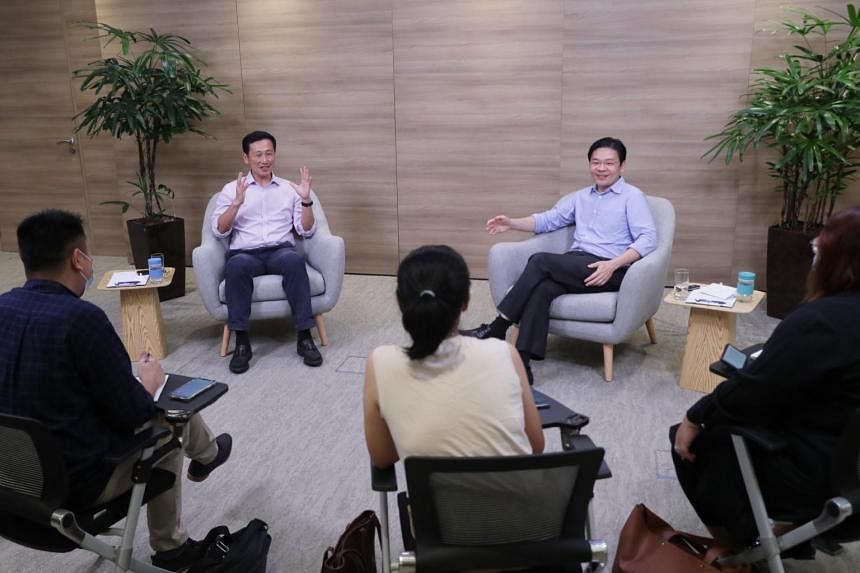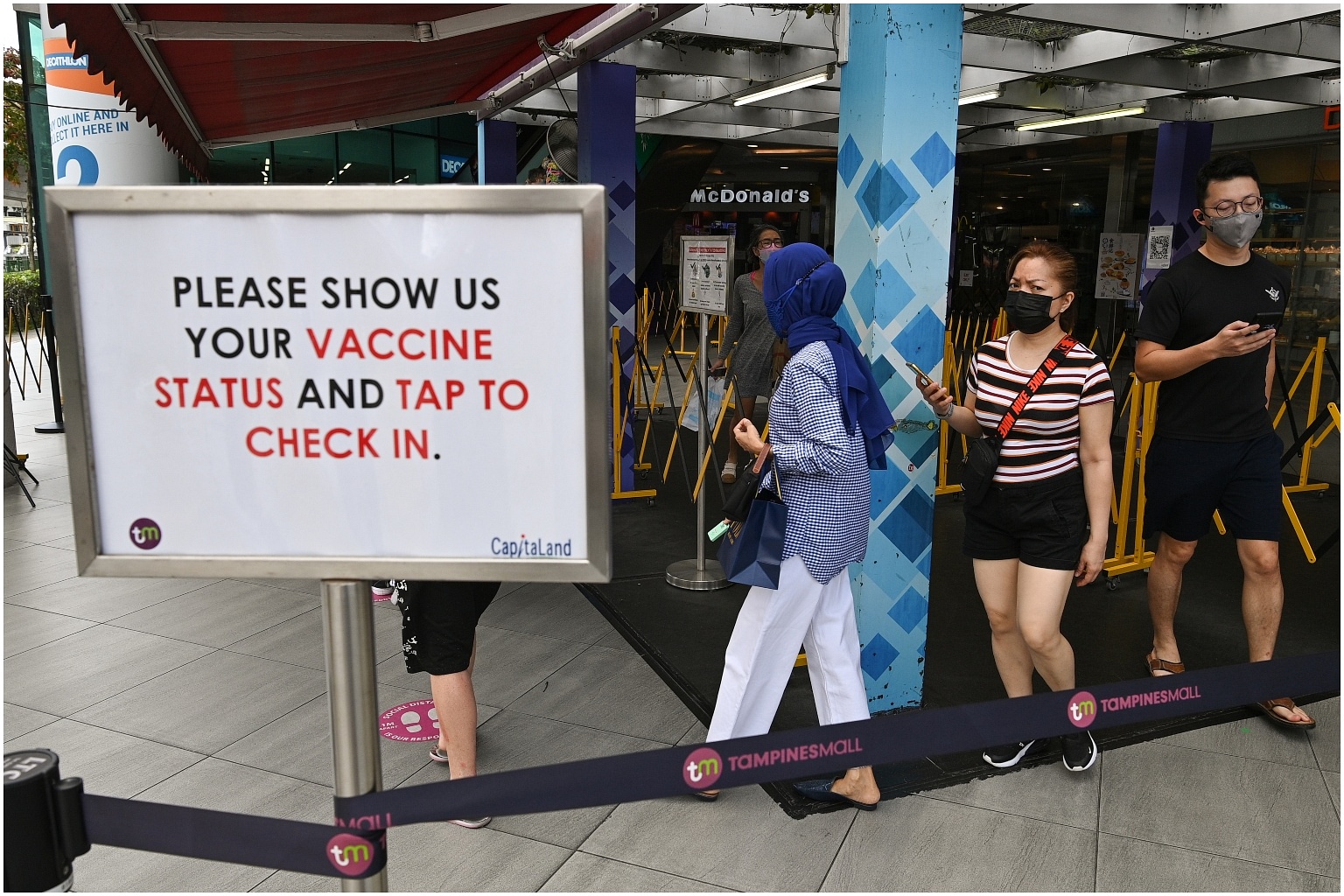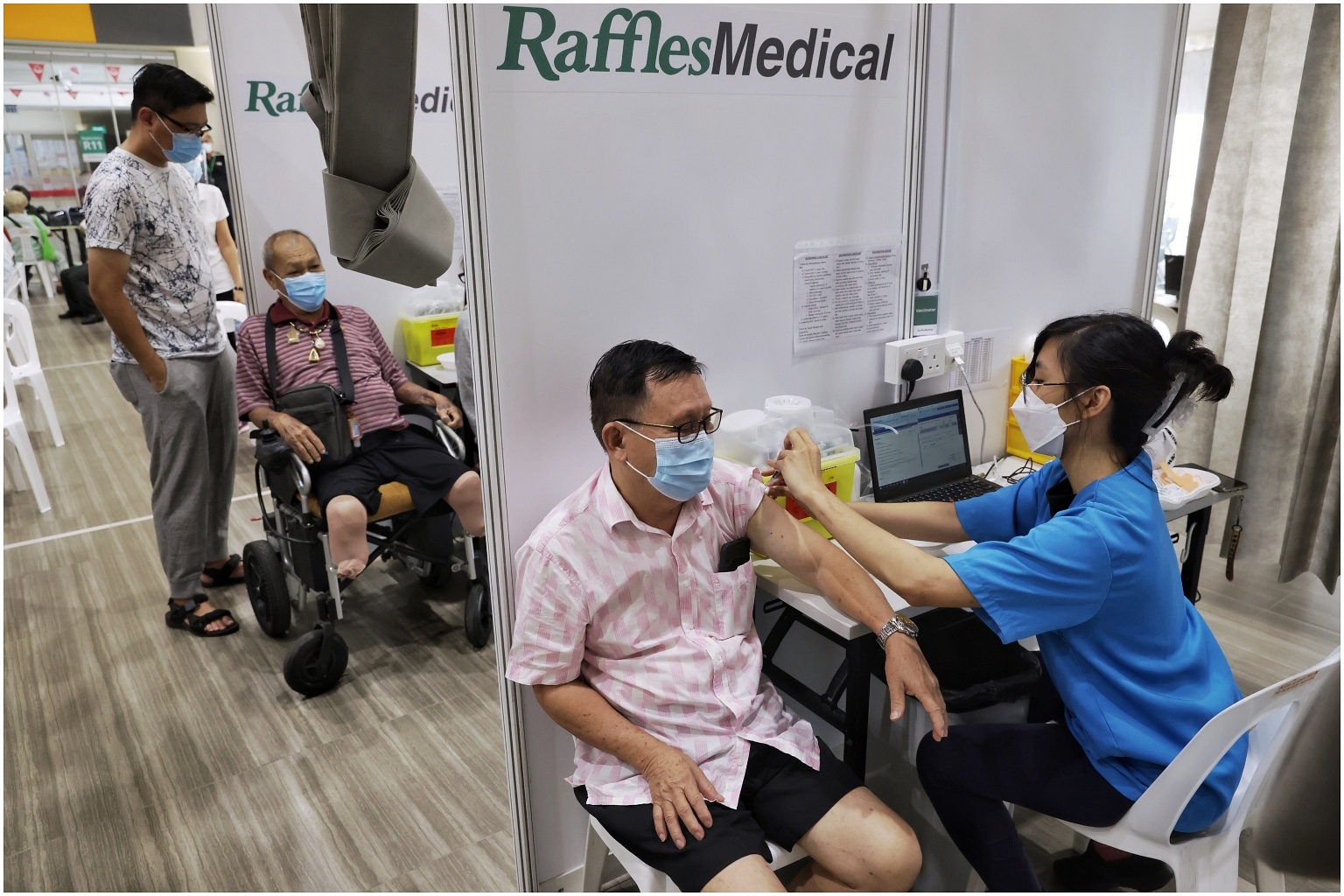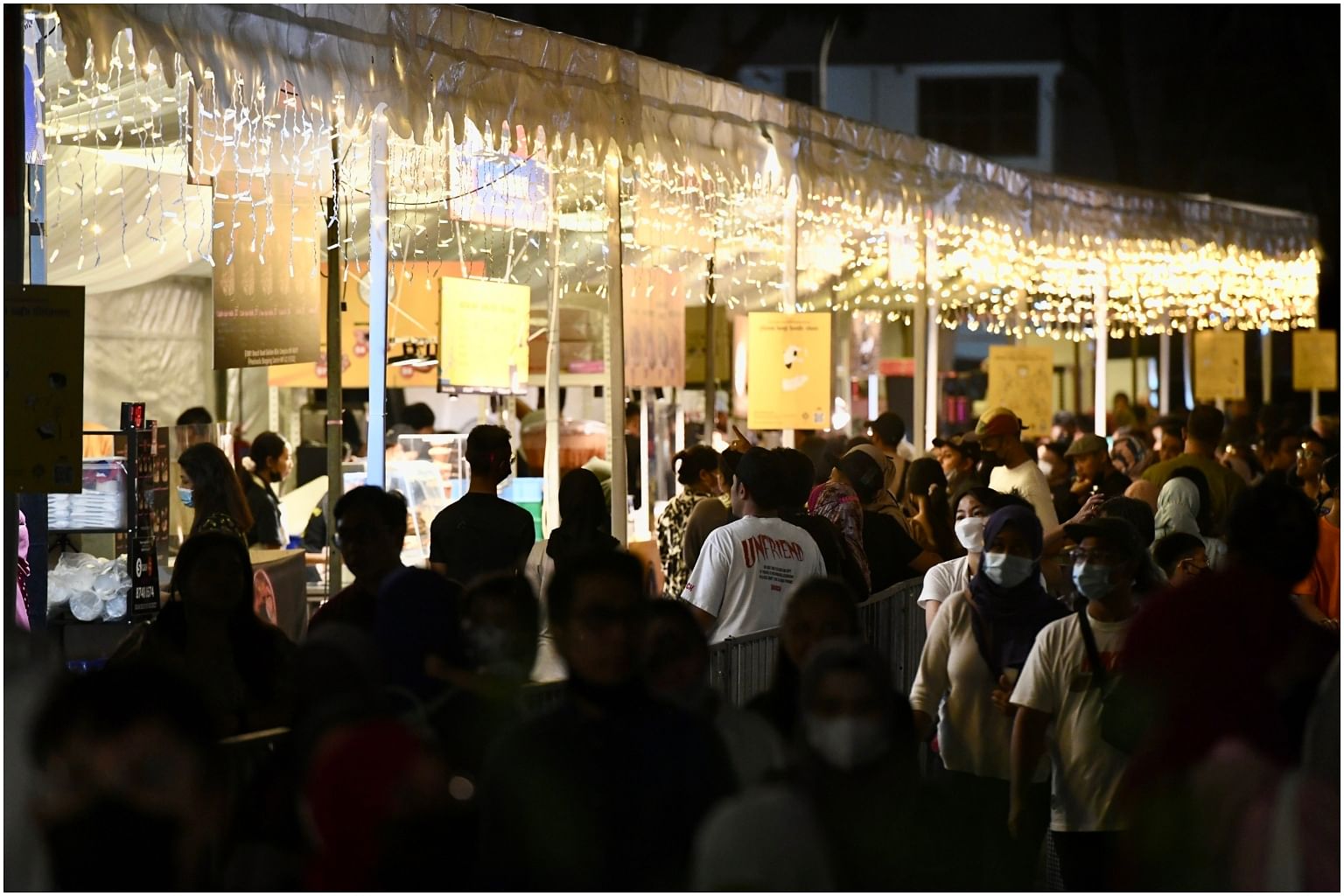More Covid-19 cases expected in Singapore but healthcare system can cope: Task force ministers


SINGAPORE - Singapore will see an uptick in Covid-19 cases now that restrictions have been eased, but its healthcare system is expected to be able to shoulder the burden.
At the same time, people should continue to exercise social responsibility, given how unpredictable the virus is, stressed two of the ministers leading the country's pandemic response.
"If cases were to pick up again, our healthcare system will be able to accommodate them and we would not need to tighten up. That is our present assessment," Finance Minister Lawrence Wong told reporters on Friday (April 1).
"But as we all know, a lot of things can go wrong - you can make the best of predictions… but you will have curve balls thrown at you."
Health Minister Ong Ye Kung said: "When rules are eased, personal responsibility goes up."
This means people have to take precautions, such as getting tested for Covid-19 before meeting vulnerable people, staying in isolation if one is unwell and not rushing to the emergency department unless it is necessary.
In their interview with reporters from four SPH Media Trust publications - The Straits Times, Lianhe Zaobao, Berita Harian and Tamil Murasu - the ministers explained the Government's decision to relax Singapore's Covid-19 rules.
They also answered questions about the road ahead, including whether the country will roll back on current measures if infection numbers spike.
The Government would not have relaxed restrictions if it expects to tighten them again when cases go up, Mr Ong replied.
"Nobody likes to do the cha-cha - three steps forward, two steps back. We wouldn't open up and take this decisive step if we thought we were going to step back."
But it is also important to understand how Singapore got to its current position, Mr Ong said.
He compared the country's ongoing battle with Covid-19 to weightlifting at the gym, noting that people may get muscle aches after lifting weights but also grow stronger over time.

Similarly, Singapore started with the circuit breaker in April 2020 and bore up under various sets of restrictions in the months that followed. Its population grew stronger as vaccination rates climbed, enabling it to ride out the milder Omicron wave with less strict rules in place.
"You (lift weights) every day. One week later, you get stronger. Muscle ache goes away," Mr Ong said. "Then you keep adding more weights. That's how you get stronger… and that's what we are doing for our society."
Mr Wong was asked about the economic impact of Singapore's reopening plans, especially the easing of border restrictions.
Freer travel means workers will be able to enter Singapore more easily, alleviating the labour shortage faced by some companies, he replied. The country hopes to get manpower in the construction sector back to previous levels by the middle of this year, he added.
While some local companies may be concerned about losing business to their Malaysian counterparts, they are also likely to see an uptick in demand from Malaysians and other tourists, Mr Wong added.
"So I hope that businesses will look at it both ways… There may be some downsides, but overall, it's a net plus for businesses."
Could Singapore's reopening further push up the cost of living? Broader forces in the wider world - such as the war in Ukraine and the ongoing supply chain crisis - remain the main factors at play, Mr Wong responded.
While increased demand from opening up could result in some upward pressure on prices, businesses' cost concerns will also be alleviated by the availability of more labour.
“It really has two effects. It is very hard to say what, overall, it will be,” Mr Wong said. "But it wouldn't really be the major driver of inflation in Singapore, which remains very much the broader forces which I just described."
Both ministers were also asked about Singapore's vaccination-differentiated measures and the continued need for SafeEntry, given that it is not difficult for unvaccinated people to enter prohibited venues as checks are not always stringent.
Mr Ong acknowledged that it is possible for a person to cheat the system if he is determined to do so. "But there is still some friction; it does carry a fine if you are detected. I think we want to keep that friction."
Singaporeans have generally been cooperative and are following the rules, Mr Wong added. "There will always be the ones that want to cheat the system... No matter how tight the system, these people will be there."
Moving forward, the country will keep a close eye on the global virus situation even as it eases restrictions to allow people to resume more normal lives, he added. "It's not tenable to say that just because there is a threat of something coming up in the future, now that we are in a good position, we still have to (remain on) high alert and cannot loosen (the measures)," he said.
When will Singapore do away with vaccination-differentiated measures? And what is the likelihood that people will need a second booster shot?
Finance Minister Lawrence Wong and Health Minister Ong Ye Kung addressed these and other questions during an interview with four SPH Media Trust publications on Friday (April 1).

Singapore will consider reviewing such measures only when it is clear that the country's hospital situation is completely stable, Mr Ong said.
This is because unvaccinated adults accounted for more than a fifth of Covid-19 cases who required intensive care or died, even though they represent only 3.5 per cent of Singapore's adult population.
"I don't think hospitals are totally out of the woods," he added. "Now is not the time to add more workload to the hospitals."
Mr Ong added that removing vaccination-differentiated measures now sends the message that it is all right for unvaccinated people to go to malls and similar settings. "And actually, it is very unsafe."

Singapore will continue to monitor the Covid-19 situation, with much depending on what happens in the coming months, Mr Ong said.
Factors that will impact the country's decision include whether it sees a significant waning of protection against severe illness and the possible emergence of new variants of concern.
The authorities announced last month that people aged 80 years and above, as well as those who have severe chronic diseases or weakened immune systems, can take a second booster dose. They will still be considered fully vaccinated if they choose not to do so.

The upcoming Hari Raya celebrations will be special because it has been a difficult two years for the Malay/Muslim community, Mr Wong said.
He observed that the community has made sacrifices, including having to adjust to muted festive celebrations and smaller prayer spaces in mosques.
"As Ramadan approaches, I think it's timely that we reflect on that spirit of resilience, that spirit of gotong royong that the community has exemplified in looking after one another," he said.
The minister was also asked if Thaipusam processions will be allowed to proceed as usual next year, given that the community's celebrations have been similarly downsized with no live music allowed.
"Sure - whatever is permitted under the current rules," Mr Wong replied. "Live performances, larger gatherings, these are all permitted. And certainly, these will apply to all the Indian festivals and ceremonies as well."
This article was first published in The Straits Times. Permission required for reproduction.